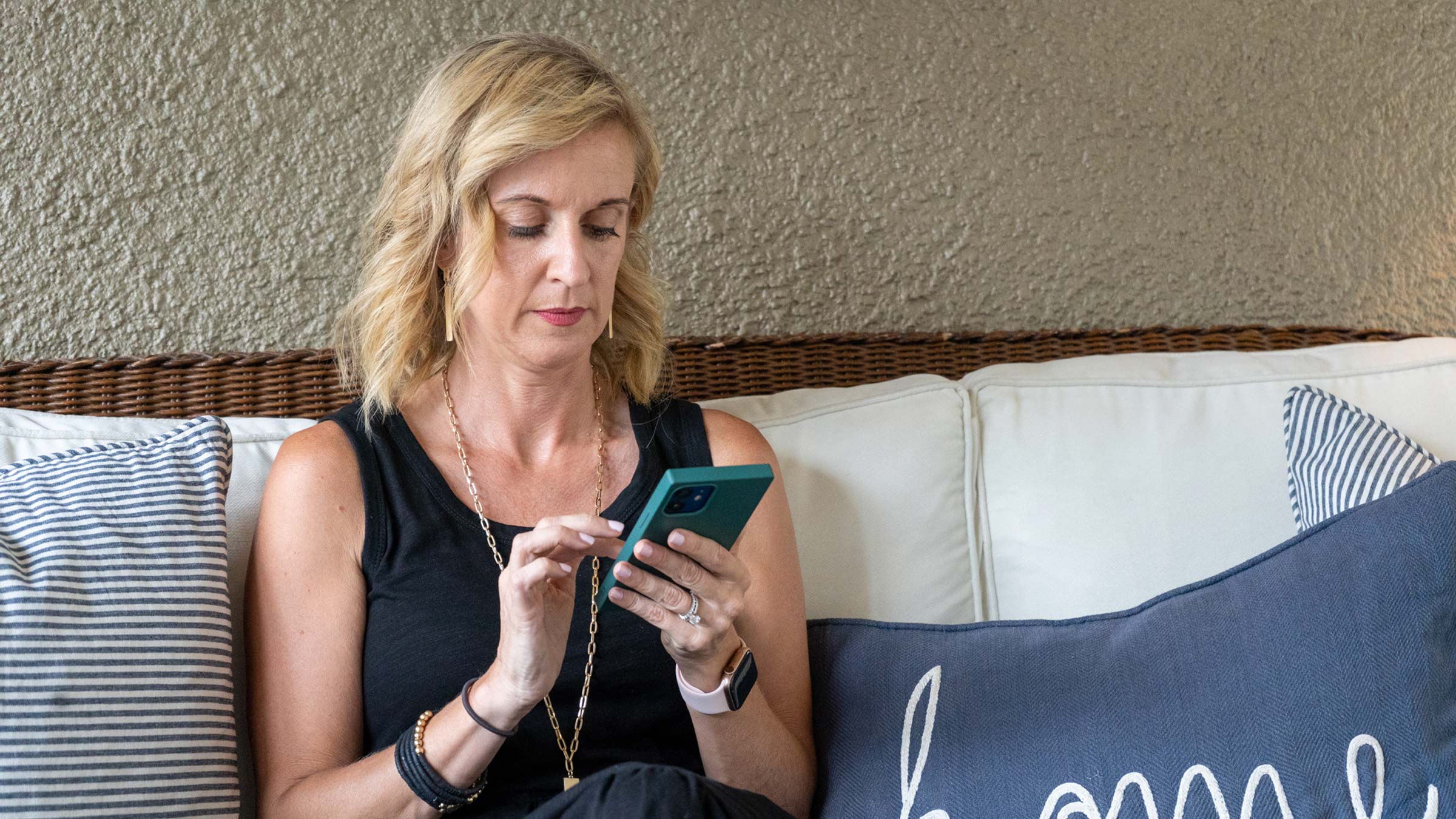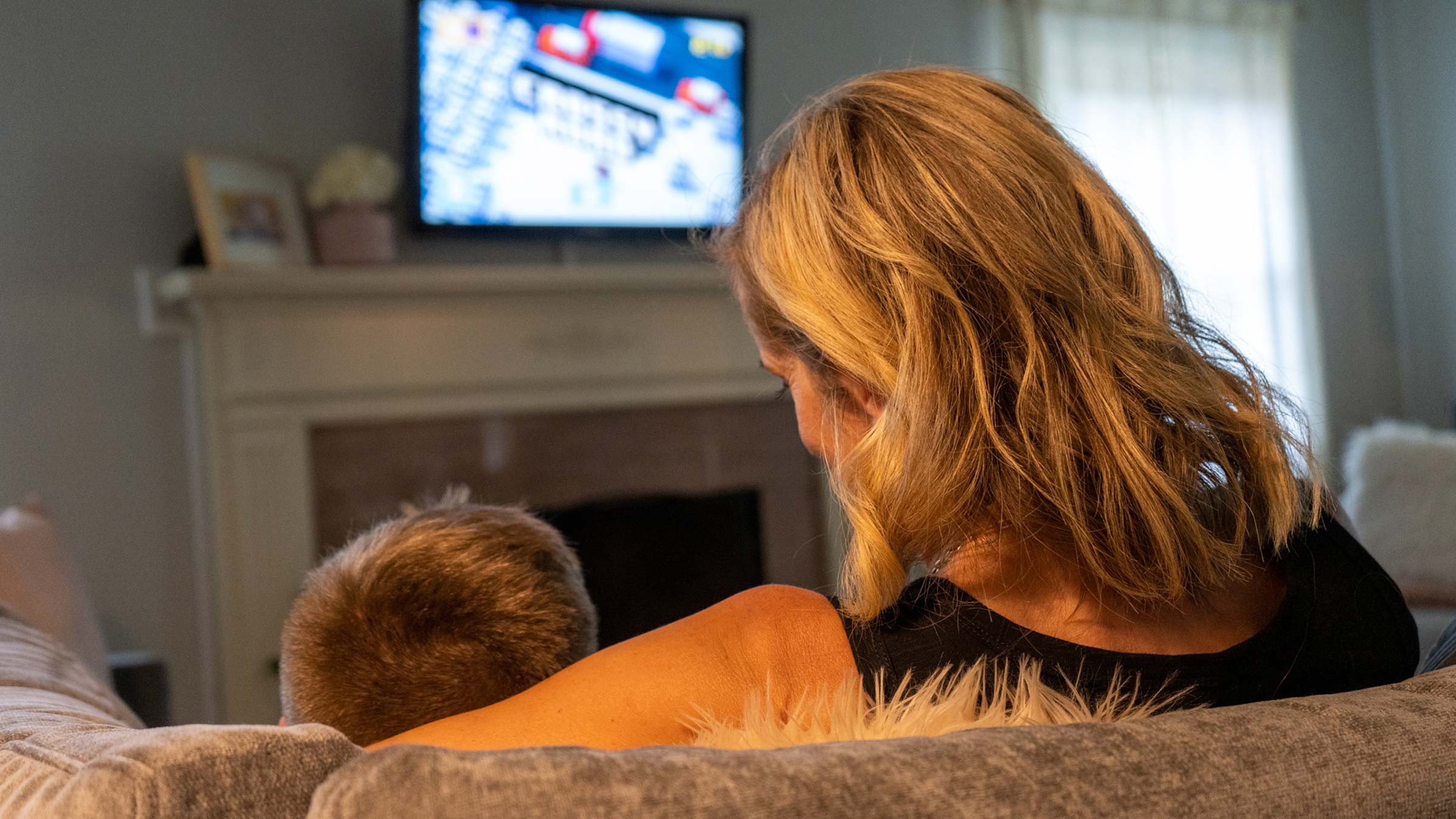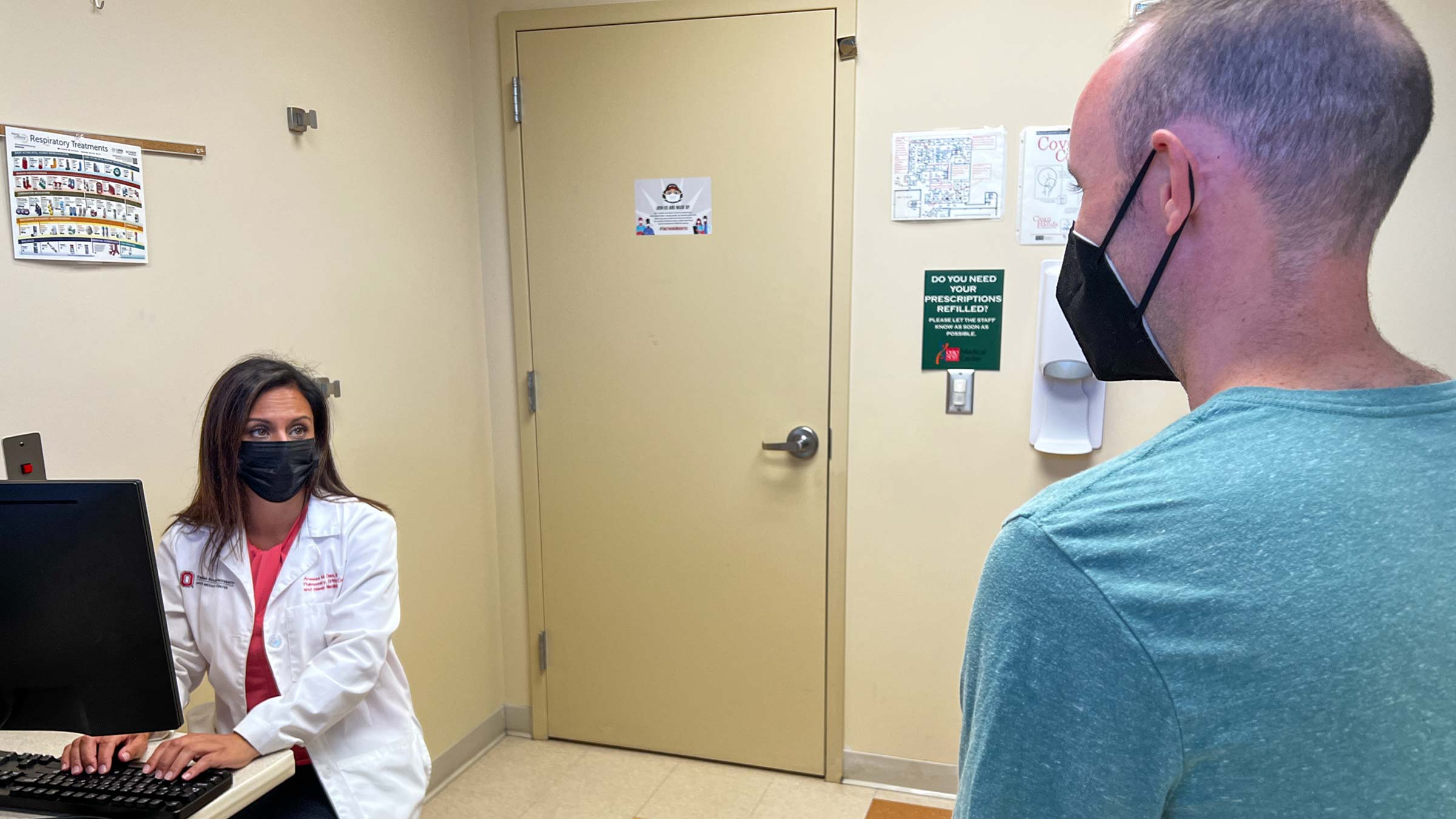Struggling to fall asleep? National survey finds troubling patterns in American sleep habits

Gina Fiorino is a busy mom of an active fourth grader, wife and working professional who primarily works from home. Fiorino, 43, also serves in many volunteer roles in her hometown of Bexley, Ohio, and has always gotten by on little or interrupted sleep each night. She says her body is programmed to function on about five to six hours of nightly sleep, but she knows she won’t be able to push through her daily routine on so little sleep forever.
Fiorino isn’t alone. In fact, the sleep medicine division at The Ohio State University Wexner Medical Center saw a 29% increase in referrals for insomnia from 2018 to 2021. The division also conducted a July 2022 national online survey, which revealed many adults in the U.S. are losing sleep over stress and worry about the current state of the world. After a global pandemic, polarizing political conflict and more than two years of turbulent events, nearly one in five of the 2,040 survey respondents report struggling to fall asleep at night.
“Raising a soon-to-be 10-year-old in the kind of craziness that's been happening in the world the past few years is definitely a stressor point,” Fiorino says.
Stress can increase your heart rate and blood pressure, give you an upset stomach and cause muscle tension, says Aneesa Das, MD, a sleep medicine expert at The Ohio State Wexner Medical Center and professor of internal medicine at The Ohio State University College of Medicine.
“All of those things increase our alertness, making it harder to fall asleep,” Dr. Das explains.

Habits that may be detrimental to a good night’s sleep are used to mitigate sleep issues by many Americans, according to the sleep survey, which had a margin of error of plus or minus 2.8 percentage points.
Nearly half of Americans say they scroll their phones right before bed and 37% fall asleep with the TV on.
Fiorino is one of them, as she often winds down in the evening by watching TV with her son. While many people feel this helps them sleep, exposure to light from TV or phone screens at night can actually work against establishing healthy sleep habits.
“Our circadian drive is that central clock telling us when we're supposed to be awake and asleep, and that is driven by light more than anything,” says Dr. Das. “When we use our smartphones and our TVs right before bed, we increase that bright light exposure at the wrong time.”
Build healthy habits to get better sleep
Dr. Das suggests progressive muscle relaxation techniques through which you gradually relax all of your muscles to calming music or audio stories. Dr. Das also recommends increasing your natural light exposure during the day by making sure to get outside. Once the sun sets, limiting light exposure is essential to obtaining better sleep. Further, consistent exercise during the week is key to helping your body get on an optimal sleep routine.
Other simple behavioral adjustments that can help improve sleep patterns include:
- Keeping your bedroom cool, dark and quiet
- Spending time in bed only when it’s time to sleep
- Using cognitive behavioral therapies, like meditation and muscle relaxation
- Keeping bedtimes and wake times consistent, even on the weekends
If you’re unable to improve your sleep on your own, experts recommend speaking with your primary care physician as a first step. They can help determine if additional methods, like sleep restriction, may be beneficial or if the insomnia could be a symptom of an underlying health condition.







